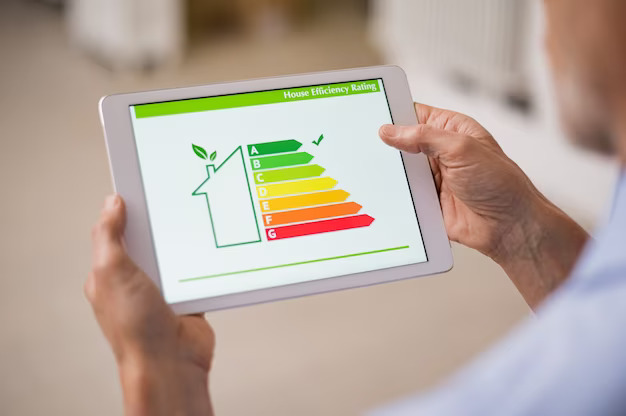Increasing the rating on your property’s Energy Performance Certificate (EPC) is not only a responsible step toward lowering your carbon footprint but also a practical approach to saving money on your monthly energy bills. Improving the Energy Performance Certificate (EPC) rating of your property has never been more important than it is in the year 2023, given the growing number of people who are concerned about the environment and the increased focus on energy efficiency. This article will walk you through some actionable activities that you can do to improve energy efficiency and increase your EPC Rating of your property.
Understand the concept of EPC rating
The Energy Performance Certificate (EPC) for a certain property is a scale from A (the most efficient) to G (the least efficient) that indicates the property’s overall energy efficiency. The higher your rating, the less energy your home will use overall and the cheaper your power bills will be. Maintaining a high Energy Performance Certificate (EPC) rating is essential for legal compliance in the United Kingdom.
The Methods for EPC Rating Improvement
-
Insulation Is the Backbone of Energy Savings
Energy efficiency relies on having good insulation. According to the data, uninsulated roofs and walls account for roughly 25% and 35% of heat loss, respectively. You may increase your home’s EPC rating and cut heating costs by installing cavity wall insulation and loft insulation. The government of the United Kingdom provides financial incentives for such renovations through programs like the Green Homes Grant.
The Department of BEIS estimates that homeowners can save up to £215 annually by insulating their attics. This exemplifies the real-world, bottom-line advantages of better insulation.
-
Fix the Doors and Windows
The loss of heat via old, single-paned windows and doors can be significant. Changing them out for double or triple-paned ones can make a big difference in terms of energy savings. It is estimated that you might save between £85 and £110 annually by installing energy-efficient glass.
-
Effectiveness of the Heating System
Improving your home’s energy efficiency is as simple as upgrading its heating system. Condensing boilers are the most efficient option and can cut heating costs by as much as 70%. Elevate your home’s Energy Performance Certificate (EPC) rating with strategic placement of smart thermostats and radiator valves.
-
Use Light Bulbs That Save Energy
Changing to LED lighting from incandescent bulbs is not only better for the environment but also cheaper in the long run. LED bulbs last much longer than incandescent ones and require much less maintenance, so they end up saving you money in the long run.
-
Swap Out Energy-Guzzling Home Equipment
When it comes time to replace appliances in your home, look for those that have earned high marks for energy efficiency. A+++ rated appliances are the most efficient and can help you save a significant amount of money on your monthly utility bills.
-
Preventing Drafts
Cost-effectively preventing drafts and keeping a constant indoor temperature can be achieved by sealing gaps and cracks in windows, doors, walls, and flooring. The average annual savings from draught-proofing your windows, doors, and closing gaps is £20 to £50.
-
Use Energy That Isn’t Depleted
Think about getting solar panels or some other renewable energy source to power your home. Installing solar panels, for instance, can lessen your home or business’s energy needs from the grid and save you money in the long run. Financial incentives are available for householders in the UK who generate renewable energy through the Feed-In Tariff (FIT) program.
-
Sustainable Heat Generation
Think about using heat pumps or condensing boilers, two renewable heat sources, to heat and hot water your home. The use of renewable energy in these systems helps you save money and cut down on your environmental impact.
-
Keep tabs on and regulate energy use
Put in programmable thermostats and other timers to save electricity. With the help of a smart home system, you can monitor your energy usage in real-time and learn where you can save money.
-
Adequate Airflow
Make sure your building has adequate ventilation to keep the air fresh without letting in too much cold air. Improve airflow and cut down on wasted power with mechanical ventilation with heat recovery (MVHR).
-
Insulate your water heaters.
Hot water tanks and pipes should be insulated to prevent heat loss. This eliminates the constant hassle of having to reheat water so that it can be used when needed.
Minimum Energy Efficiency Standards
Compliance with MEES is essential. Regulations prohibit leasing properties with EPC ratings below E. From April 1, 2023, this rule applies to new tenancies, and April 1, 2024, to existing ones. Landlords must achieve or surpass this level to avoid legal difficulties and give tenants a more pleasant and energy-efficient house. MEES promotes energy-efficient renovations including insulation and heating to meet the UK’s carbon reduction goals. MEES compliance in your home upgrading plan boosts your EPC rating and assures legal compliance with energy efficiency laws.

